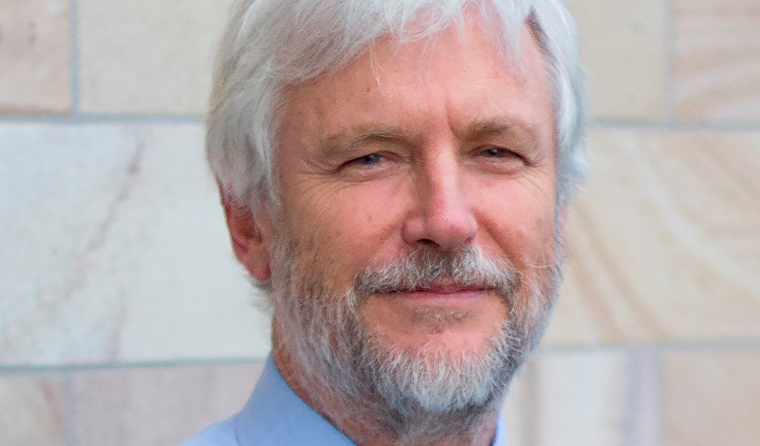News
GPs to lead the charge against ‘too much medicine’
Over-diagnosis has been labelled a ‘major threat to human health’ by researchers who have championed a primary care response.
 The study criticised the increasing creation of ‘pre-diseases’, which can medicalise patients who are ‘at risk of being at-risk’.
The study criticised the increasing creation of ‘pre-diseases’, which can medicalise patients who are ‘at risk of being at-risk’.
According to the researchers, many people are being diagnosed and treated unnecessarily due to constantly expanding definitions of disease, which causes harm and waste, and threatens the sustainability of health systems.
The report, published in The BMJ, suggests over-diagnosis is driven by specialist guideline groups, many with financial ties to pharmaceutical companies. These groups regularly review disease definitions and often decide to expand them by reducing thresholds to capture more people at lower risk of future illness, creating pre-diseases, and over-medicalising common or mild life experiences.
Australian GP and researcher Professor Paul Glasziou, who contributed to the study, told newsGP that while some recognise the problem, others have expanded diagnostic boundaries without working with GP groups.
‘Over-diagnosis is a large and growing problem in Australia and globally. For example, 41% of prostate cancers are now over-diagnosed, as are many thyroid, renal, and breast cancers,’ he said.
‘That is why we need a new primary care collaboration to balance specialist interest groups.
‘GPs can [also] help by reducing unnecessary testing, confirming diagnoses, and using lower dose or less invasive treatments, especially for lower risk and less severe disease.’
The study’s examples of what should more correctly be understood as ‘states of being at risk’ rather than ‘diseases’ or ‘chronic conditions’ include high blood pressure, high cholesterol, type 2 diabetes and osteoporosis. It also criticises the increasing creation of ‘pre-diseases’, such as pre-diabetes, which in some cases medicalises patients who are ‘at risk of being at-risk’.
‘The medicalisation of being “at risk” of a future disease axiomatically creates over-diagnosis, as some people at risk will never suffer that disease, but instead only experience long-term harms of an unnecessary label and treatment,’ the report states.
‘Notwithstanding the good intentions driving a bad system, the human person can no longer be treated as an ever-expanding marketplace of diseases, benefitting professional and commercial interests while bringing great harm to those unnecessarily diagnosed.’
The report also details how a GP-led working group was unable to identify ‘any currently accepted criteria for modifying a disease definition’ used by guideline groups, highlighting the variation in how definitions are changed and the lack of rules governing such processes.
 GP and researcher Professor Paul Glasziou, who contributed to the study, said that while some recognise the problem, others have expanded diagnostic boundaries without working with GP groups.
GP and researcher Professor Paul Glasziou, who contributed to the study, said that while some recognise the problem, others have expanded diagnostic boundaries without working with GP groups.
The report’s lead author, Assistant Professor Ray Moynihan from Bond University’s Centre for Research in Evidence-Based Practice, told newsGP the problem of over-diagnosis is often exacerbated by conflicts of interest held by guideline panel members.
‘Too often that process has been connected to the pharmaceutical companies primarily interested in expanding markets for their products … it is clearly time for that unhealthy conflict of interest to end,’ he said.
As a way of avoiding such conflicts, the researchers have called for a new primary care-led approach to defining disease.
‘This new proposal is not about excluding specialists; on the contrary, specialist knowledge and experience is vital to setting meaningful disease definitions,’ Assistant Professor Moynihan said.
‘The aim is to clean up the current situation where disease specialists – and their organisations – have dominated the processes of defining and expanding diseases, and regularly labelled more and more healthy people as sick.’
To combat the problem, the researchers recommend replacing existing panels with GP-led multi-disciplinary teams that include representatives from consumer/citizen organisations, with all members free of financial ties to pharmaceutical or other interested companies.
The proposal has its roots in the Preventing Overdiagnosis conference series, which is co-sponsored by the World Health Organization and will take place in Sydney in December. Study co-author and President-elect of the World Organisation of Family Doctors (WONCA) Dr Anna Stavdal will be in attendance.
‘The aspiration is to see diagnoses offered to those who will benefit from them, rather than those for whom they may cause more harm than good,’ she said.
Assistant Professor Moynihan said it is hard to know what outcomes will arise from the conference, but he is hopeful it will generate more interest among doctors wanting to address the issue.
‘We imagine the conference will be of great interest to Australian GPs, who are often at the coalface dealing with the fallout from expanded disease definitions labelling too many healthy people,’ he said.
‘We know from recent studies that describing potentially benign abnormalities in more medicalised terms can cause more anxiety, and increase preferences for treatments, rather than watching and waiting.
‘As GPs would know, diagnoses and labels have consequences, so there is a very important need to use them when they are likely to do more good than harm.’
overdiagnosis too much medicine
newsGP weekly poll
As a GP, do you use any resources or visit a healthcare professional to support your own mental health and wellbeing?